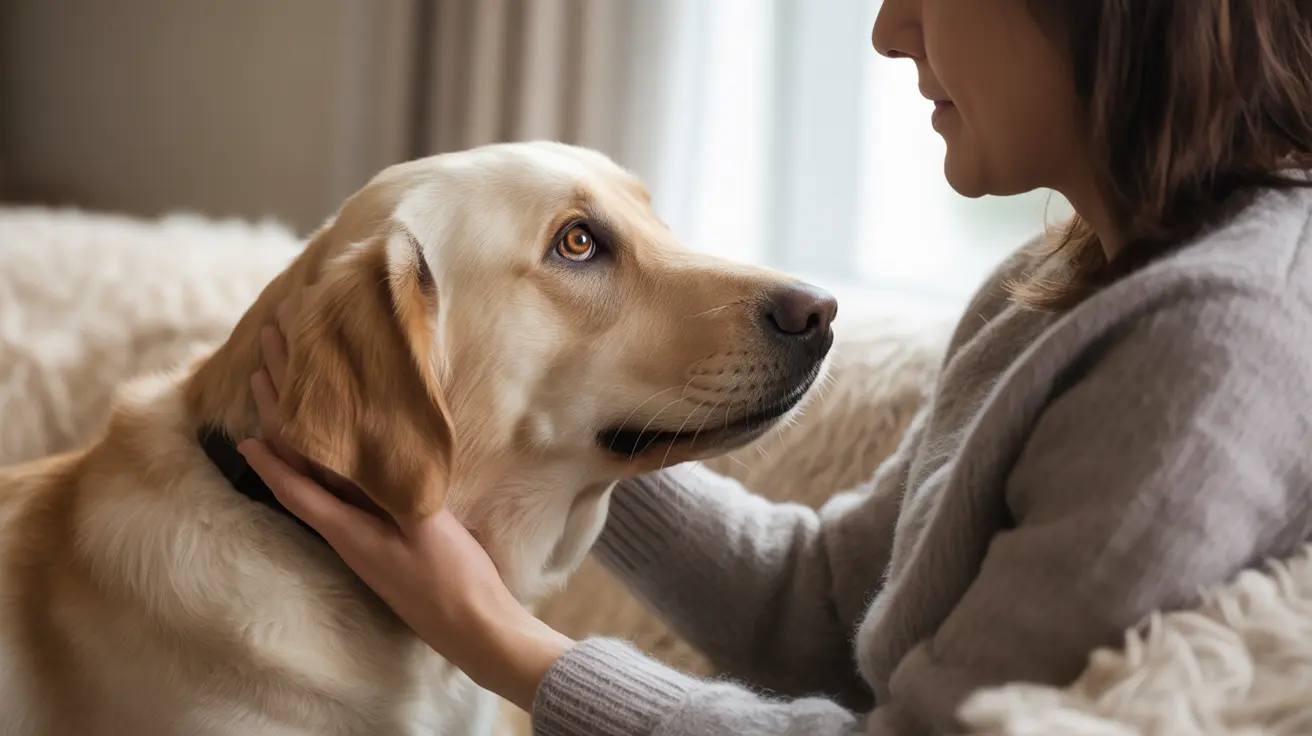Has your furry friend suddenly become your constant shadow, following you from room to room and demanding more attention than usual? This sudden increase in attachment, often called "velcro dog" behavior, can be both concerning and puzzling for pet owners. While some clinginess is normal in dogs, a dramatic change in attachment levels often signals that something in your dog's life has shifted.
Understanding why your dog has become suddenly attached is crucial for addressing any underlying issues and ensuring your pet's wellbeing. Let's explore the various causes of this behavior and learn how to respond appropriately.
Health-Related Causes of Sudden Attachment
When dogs experience physical discomfort or health changes, they often seek comfort from their trusted human companions. This instinctive behavior serves as a survival mechanism in the wild, where showing weakness could make them vulnerable to predators.
Common health-related triggers for sudden clinginess include:
- Vision or hearing loss, particularly in senior dogs
- Chronic pain or illness
- Hormonal changes
- Cognitive dysfunction in older dogs
- Anxiety or depression
Changes in Sensory Perception
As dogs age or develop health issues affecting their senses, they may become more dependent on their owners for security and guidance. When their world becomes less clear through diminished vision or hearing, they naturally gravitate toward the familiar presence and scent of their trusted human companion.
Environmental and Emotional Triggers
Dogs are incredibly sensitive to changes in their environment and their owner's emotional state. Even subtle alterations in routine or household dynamics can trigger increased attachment behavior.
Common Environmental Factors:
- Moving to a new home
- Changes in household members
- New pets or furniture
- Construction or renovation noise
- Changes in work schedule
- Seasonal changes affecting indoor/outdoor time
Emotional Influences:
Dogs often mirror their owner's emotional state, becoming more clingy when they sense anxiety, stress, or depression in their human companions. This emotional synchronization can create a feedback loop where both dog and owner reinforce each other's anxious behaviors.
Managing Sudden Attachment Behavior
While it's important to show love and support to your pet, managing excessive clinginess requires a balanced approach:
- Maintain consistent daily routines
- Create positive associations with alone time
- Gradually increase independence through training
- Provide mental stimulation and enrichment activities
- Consider professional behavioral support if needed
Training Tips for Independence
Start with short periods of separation in the same house, gradually increasing duration as your dog becomes more comfortable. Use positive reinforcement to reward calm, independent behavior rather than attention-seeking actions.
Frequently Asked Questions
Why is my dog suddenly so clingy and following me everywhere?
Sudden clinginess often indicates a change in your dog's physical or emotional wellbeing. This could be due to health issues, anxiety, environmental changes, or a response to your own emotional state. A veterinary check-up can help rule out medical causes.
Can my dog's sudden attachment be a sign of health issues?
Yes, sudden changes in attachment behavior can signal underlying health problems, including pain, sensory loss, or cognitive changes. Always consult with your veterinarian if you notice dramatic behavioral changes.
Do dogs get more attached when they sense owner stress or anxiety?
Dogs are highly attuned to human emotions and can become more clingy when they sense their owner is stressed or anxious. They may try to offer comfort or mirror their owner's anxiety through increased attachment behavior.
How do I stop my dog from being overly clingy without causing anxiety?
Focus on gradually building independence through positive reinforcement training, maintaining consistent routines, and providing mental stimulation. Avoid punishing clingy behavior, as this can increase anxiety.
Is sudden clinginess in older dogs related to hearing or vision loss?
Yes, senior dogs experiencing sensory decline often become more attached to their owners as they rely more heavily on familiar scents and physical presence for security and navigation in their environment.






